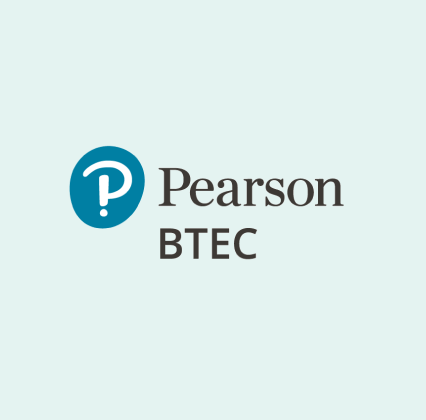Course Overview
The Pearson BTEC International Level 3 Foundation Diploma in Information Technology offers a comprehensive education in IT, focusing on fundamental computer systems, and the development of applications, websites, and mobile apps.
The course encompasses modules designed to impart essential skills and expertise required in the IT industry.
This diploma fosters critical thinking, problem-solving, and effective communication, preparing learners to adapt and thrive in the IT industry. Through practical learning and real-world applications, graduates become valuable assets to any organization.
☑️ Crafting reliable software solutions using programming principles.
☑️ Creating IT usage policies for smooth system functioning.
☑️ Designing and managing relational databases.
☑️ Developing user-friendly websites.
☑️ Mastering Android mobile applications.
☑️ Cultivating advanced interpersonal skills for effective communication and problem-solving.


E-Learning
110 hours

Flipped Class
100 hours

Mentoring Support
450 hours

Assessment
3.5 hours
Target Audience
-
Candidates who are interested in academic progression
-
Candidates who plans to join Pearson BTEC HND Level 5 or Lithan’s Higher Diploma in Software Engineering courses
-
Candidates who plans to pursue degree in IT
-
Candidates who would like to join UoR bachelor’s degree in computer science
Admission Prerequisites
Minimum Age:
-
16 years & above
Academic Qualifications:
-
China - Standard 10
-
India - Standard X, ITI Students
-
Malaysia - Form 4 (10th Grade), Form 5 (11th Grade)
-
Myanmar - Standard IX (Grade 10), Standard X (Grade 11 after passing Matriculation)
-
Singapore - Completion of IGCSE/O level or equivalent/NITEC/Higher NITEC/ITE
English Proficiency:
IELTS 5.5 or it’s equivalent at the end of this course
Graduation Requirements
Minimum attendance of 75% in all the sessions of each module
Achieve the minimum passing grade in the Pearson’s Summative Assessment of each module
Module Summary
Information Technology System - Strategy, Management and Infrastructure
Learn the fundamental aspects of IT systems, including hardware, software, and user interactions. Learners will examine how IT systems operate, their impact on organizations, and the global accessibility they provide. The module aims to equip participants with a comprehensive understanding of IT systems for personal, professional, and academic growth.
What You’ll Learn:
- Organizations and Information Technology
- IT Systems Infrastructure
- Data Management and Security
- Moral, Legal, and Ethical Issues
- Information Management Strategies and
- Best Practices
Programming
Develop essential software development skills, emphasizing the importance of high-quality application design. It covers programming languages, methodologies, and collaboration with clients to create tailored solutions. Learners apply computational thinking to develop, test, and refine programs, enhancing their problem-solving and programming abilities through practical IT-related challenges.
What You’ll Learn:
- Computational Thinking
- Procedural Programming
- Event Driven Programming
- Object Oriented Programming
- SDLC and Testing
Creating System to Manage Information
Gain proficiency in planning, designing, and implementing relational database management systems tailored to organizational requirements. Learn to evaluate system performance and capacity through rigorous testing. Explore various relational database management system types and models, covering data definition, manipulation, and administration statements. Understand normalization techniques to optimize database structure, and master data import and export processes for seamless data management.
What You’ll Learn:
- Introduction to Database
- Logical Data Modelling
- Logical Data Modelling Constraints
- ER Diagrams
- Data Normalization
- Database Design and Development
- SQL Basic
- CRUD in MySQL
- Constraints and Joins
- Implement and Test Logical Model
Customizing and Integration Application
Learn to enhance application software to support organizational processes, improving flexibility and performance. It covers customization, integration with tools like social media and cloud platforms, and technologies such as Java, APIs, and third-party extensions. Learners will design, implement, and test applications, addressing real-world business challenges.
What You’ll Learn:
- Requirements Gathering and Analysis
- Middleware Software Components
- Design Middleware Components
- Integration of Middleware Components
- Testing and Deliverable Management
Website Development
Develop advanced web development skills, focusing on HTML, CSS, and JavaScript. They will critically evaluate and enhance website design, mastering tools for content creation and modification. The module prepares them for careers, apprenticeships, or further education in web development and design, emphasizing user engagement and satisfaction.
What You’ll Learn:
- WWW components and Technologies
- Website Design
- Website Development
- Responsive Design
- Testing and Documentation
IT Project Management
Gain essential project management skills, particularly for IT, focusing on quality, timelines, and budgets. Students engage in managing IT projects using key methodologies, progressing through five project stages. The module prepares them for higher education and careers by developing problem-solving and analytical skills applicable in various fields.
What You’ll Learn:
- Project Management Methodologies
- Software Development Methodologies
- Tools and Techniques
- Feasibility Study and Risk Analysis
- Project Closure
Mobile Apps Development
Gain essential mobile app development skills, emphasizing the competitive landscape and the growing importance of mobile apps in organizations. Learners will explore design principles, development processes, and testing, focusing on device-specific considerations. Practical experience in creating mobile apps tailored to client needs is a key component.
What You’ll Learn:
- Importance of Mobile Apps
- App Design Considerations and Issues
- Android Project Structure
- Developing Android App
- Testing and Documentation
Certification(s)

Certification(s) Earned
-
Pearson BTEC International Level 3 Foundation Diploma in Information Technology awarded by Pearson, UK
Pricing
About Pearson
Pearson is the world’s leading learning company, with 40,000 employees in more than 70 countries working to help people of all ages to make measurable progress in their lives through learning.
Pearson provides learning materials, technologies, world class qualifications, assessments and services to teachers and students in order to help people everywhere aim higher and fulfil their true potential.
In the UK, Pearson is the largest awarding organisation offering academic and vocational qualifications that are globally recognised and benchmarked, with educational excellence rooted in names like Edexcel, BTEC, including BTEC Higher Nationals, and LCCI. Pearson are driving innovation through digital products such as ResultsPlus, and supporting skills and employability for progression in study, work and life.
Learn more uk.pearson.com






-Jan-17-2025-11-47-52-8547-AM.png)